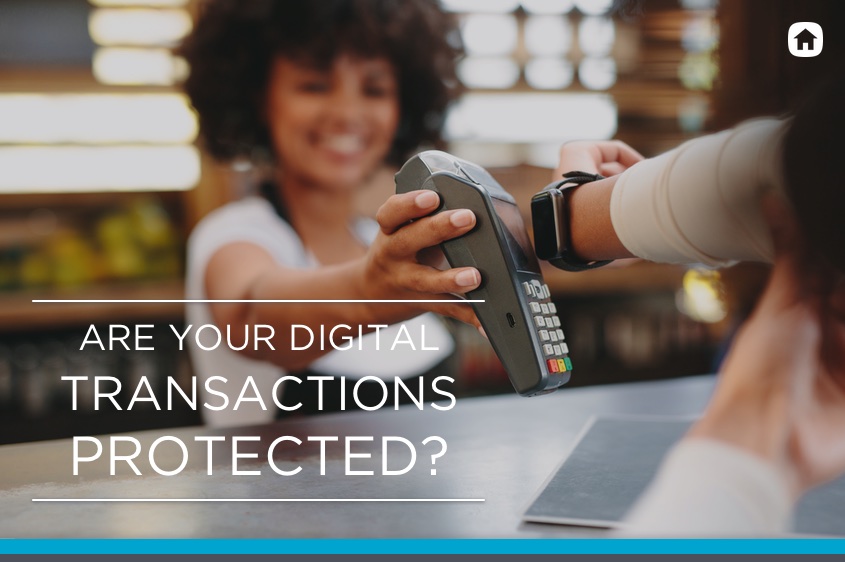Sophia Rosenbaum
THE ASSOCIATED PRESS – NEW YORK
My desperation to see Ariana Grande in concert created
the perfect trap.
Instead of seeing her sing about love and loss, I got sucked into
an online ticket scheme that cost me $75 and a big chunk of my
pride.
Con artists often get away with scams like these because digital
payment services such as Venmo and Apple Cash don’t protect
consumers the same way credit cards do. As a rule of thumb, the
newer the service, the more likely con artists will target it.
“The regulations haven’t caught up with these technology
capabilities,” said Krista Tedder, head of fraud management at the
advisory firm Javelin Strategy & Research.
With credit cards, federal law caps your liability at $50, and
most companies go further with zero-liability policies. Debit cards
typically offer similar protections if you report the fraud
immediately. In addition, banks go through a series of verifications
before letting someone open an account.
But digital payment services work more like cash. When fraud
occurs, it’s as though someone took off with your $20 bill.
Because such services aren’t bound by the same regulations as
credit and debit cards, it’s up to individual companies to offer
protections themselves.
Experts say Western Union, which has been offering money
transfers long before smartphones, devotes a team to monitoring and
validating transactions. Tedder said Western Union would even call a
customer if something looks suspicious.
“They really treat every transaction as a potential risk,”
Tedder said.
A more recent service, PayPal, offers reimbursements when
merchants ship damaged or counterfeit items, but digital money
transfers aren’t covered.
The newest ones, including Apple Cash, are still figuring out how
to deal with fraud, experts say. Others, like Facebook’s proposed
Libra currency, is on the horizon.
“These payment systems should carry a big red flag that says
you’re not protected,” said Avivah Litan, a senior analyst at
Gartner. “I never use them because I know of all the perils.”
Western Union and PayPal, which also owns Venmo, declined comment
on their fraud-protection policies.
Apple also declined to comment, but offers online tips that warn,
“If you’re not sure about their identity, don’t send the payment.”
To be fair, my phone warned me to use Apple Cash only with people
I knew, but I ignored that in my desperation to get the tickets. I
wrongly assumed that because Apple Cash was drawing money from my
debit card account, I’d be protected if anything went wrong.
As I looked for tickets online for Grande’s sold-out show in
September, some of the people I spoke to clearly were scammers: They
wouldn’t send pictures of their tickets. Their social media account
seemed too new to be real.
But one person had a plausible story about just wanting to get
some money back for a show he couldn’t attend. We talked twice
through a Facebook Messenger call, which I found comforting, though
my partner later pointed out it was a false sense of security.
The biggest red flag I ignored was the scammer’s insistence on
using Apple Cash, a payment method I was unfamiliar with. Launched
in 2017, Apple Cash lets iPhone users send money to each other
through Apple’s Messages app. Money you send comes out of your bank
account. Money you get can be spent at merchants that take Apple Pay
or moved back to a bank account.
Five minutes after I sent $75 through Apple Cash, the scammer’s
Facebook account disappeared, and so did all my ways of contacting
him.
Since then, I’ve felt guilty and embarrassed that I fell for it,
angry that companies aren’t protecting me and sad that I didn’t get
to go to the concert.
“A lot of people have this happen to them and blame themselves,
and it’s not their fault,” Tedder said.
It’s not clear how widespread these scams are. The Department of
Justice found only 15% of all fraud victims report it to law
enforcement. The FBI says while it’s unclear why so few people
report fraud, many of the complaints they do receive show victims
were embarrassed or worried their family would be devastated.
Tedder said that if more people reported these scams, it could
better inform government agencies tasked with tracking and in turn,
creating solutions and policies for these types of crimes.
Experts also say consumers are typically unaware of what is and
isn’t protected. Litan said she believes the government should do
more to educate people.
There are some hopeful developments. Apple has partnered with
Goldman Sachs for an Apple-branded credit card, which some experts
say may put pressure on Apple to get more serious about protecting
its consumers on other services like Apple Cash.
But even newer services _ and newer targets for scammers _ are
coming. Facebook is working on a digital currency called Libra,
which the company says will allow for easier buying and selling
across the internet. Facebook says when people spend libras through
Facebook’s own wallet, Calibra, their identities will be verified to
help guard against fraud. But well before the currency’s launch,
scammers are already trying to sell fake libras.
In the words of Ariana Grande, I have “learned from the pain.”
Fortunately, I’ll be able to see her sing that very line next week
in New York, as she added more concert dates after I was scammed. I
bought two tickets through Ticketmaster. Though fees get expensive,
I now realize I’m praying for the peace of mind.

 Buying a Home5 years ago
Buying a Home5 years ago
 Credit6 years ago
Credit6 years ago
 5 Mortgage Secrets6 years ago
5 Mortgage Secrets6 years ago
 Business4 years ago
Business4 years ago
 Buying a Home6 years ago
Buying a Home6 years ago
 5 Mortgage Secrets6 years ago
5 Mortgage Secrets6 years ago
 Business4 years ago
Business4 years ago
 Buying a Home6 years ago
Buying a Home6 years ago






